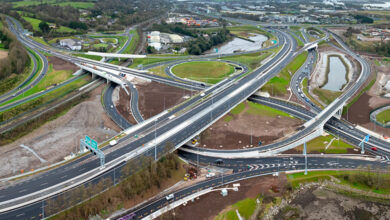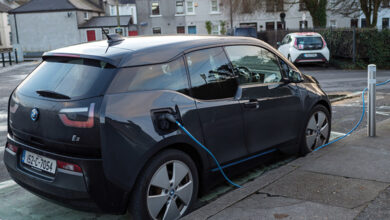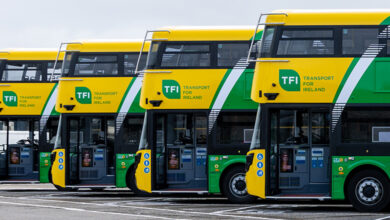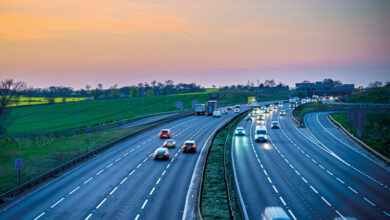Public transport at a crossroads: switching to gas
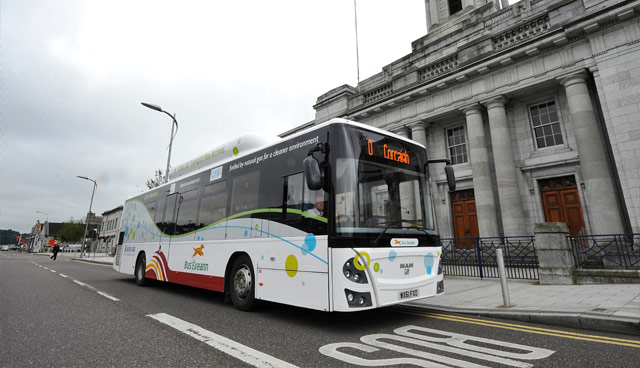

As Ireland struggles to meet its targets for transport emissions, policy makers are looking for solutions to reduce emissions from the public transport sector. With the launch of renewable gas (biomethane) on the natural gas network approaching, now is the time that we shift our dirty diesel buses to a cleaner renewable alternative.
Ireland’s transport emissions are on the rise again. Transport emissions increased by 3.7 per cent in 2016 (0.44 MtCO2eq) after a number of years in decline. This is driven by economic and employment growth and, according to the EPA, shows no sign of slowing in the short term. It is well-understood that an increased focus on public transport must be part of the solution to transport emissions.
Public transport is in itself an intrinsically good thing for the environment. In 2016, passengers on Bus Éireann and Dublin Bus took 156.9 million journeys. In total, public transport accounted for 5.5 per cent of all journeys taken in Ireland – this was a slight fall from (5.8 per cent). Use of the bus in Ireland is above the EU average; 17.3 per cent versus 9.1 per cent (Eurostat 2014).
Based on National Transport Authority figures, there were 2,719 buses providing services in 2015. This is up from 2,597 in 2014. Just under half of these are owned by private operators, just over a third are operated by Dublin Bus and the balance by Bus Éireann. However, not all buses are created equal in terms of environmental performance. Particularly given that not all fuel types deliver the same benefits.
A few years ago, the benefits of diesel cars were being heralded, particularly as a means of reducing carbon emissions. Diesel is a heavy emitter of particulate emissions, nitrous oxide and sulphur dioxide – all of which can cause respiratory diseases. As a result, cities such as Athens, Paris and Madrid have each indicated that they will be banning diesel cars and vans in the near future.
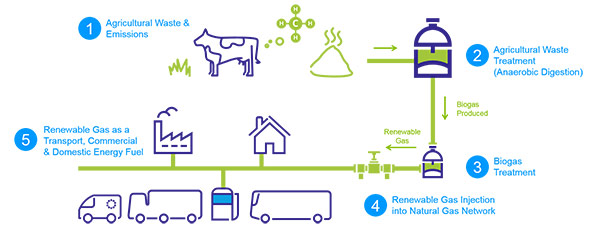
Ireland’s bus fleet is almost exclusively comprised of diesel buses. While recent years have seen some improvements in the performance of diesel engines, even the most modern diesel engines pose a threat to air quality. With nearly 1,500 Irish buses due to be replaced within the next 10 years, decisions must be taken now regarding the best technology to replace them. Minister Ross has already committed that no further diesel only buses will be purchased post-2019. The Department of Transport, Tourism and Sport is examining alternative options.
The launch of renewable gas (biomethane) in Ireland offers a real opportunity for a cleaner transport service. Gas Networks Ireland is currently constructing a network of compressed natural gas (CNG) refuelling stations around Ireland – these can deliver both CNG and renewable gas. This network will provide the ability to shift straight from diesel to a zero-carbon alternative. Gas Networks Ireland will be introducing renewable gas into the Irish network later in 2018. The roll out of renewable gas will be swift, with Gas Networks Ireland aiming to achieve 20 per cent gas from renewables by 2030.
Renewable gas is made from animal waste, grass and other waste feedstocks. Renewable gas has the same chemical properties and the same applications as the natural gas which heats our homes and businesses. The only difference being that it is made from renewable feedstocks. Compressed biogas (CBG) is a renewable gas which has simply been compressed to fit in the fuel tank of a vehicle.
“Switching to renewable gas eliminates this emissions problem and helps clean up the air in our cities. Gas Networks Ireland is putting in place the infrastructure and the renewable gas supply to make this happen.”
From an emissions perspective, renewable gas delivers major savings over diesel and other fuel types. It delivers zero CO2 emissions and can significantly reduce other emissions which impact on air quality. It can also deliver cost savings for transport operators.
Speaking at the recent Energy Show, Dan Fitzpatrick of Gas Networks Ireland, highlighted the role of Renewable Gas in transport.
“Heavy vehicles and passenger service vehicles are 4.5 per cent of our fleet and 26 per cent of our emissions. Switching to renewable gas eliminates this emissions problem and helps clean up the air in our cities. Gas Networks Ireland is putting in place the infrastructure and the renewable gas supply to make this happen.”
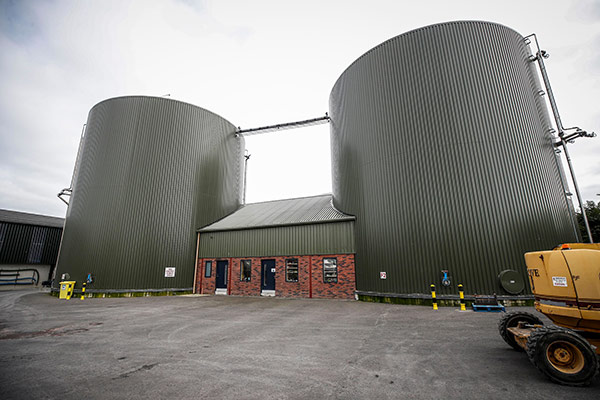
CBG runs in the same engines as traditional compressed natural gas, a globally recognised alternative to diesel. It has similar refuelling and operational characteristics to diesel, with a fast filling time and similar travel ranges. This operational efficiency makes it an attractive option to transport operators, particularly when compared with electricity-powered buses. This is a proven solution, which has been tried and tested in markets around the world for many years. There are currently 1.9 million gas powered vehicles in Europe and over 25 million4 worldwide. Most major bus manufacturers offer a range of CBG vehicles.
As public transport operators around the world seek to lower or eliminate their emissions, more and more are turning to gas to provide this solution. In the UK, cities such as Reading, Sheffield and
Nottingham are renewing their diesel fleets with renewable gas buses.
Nottingham is one of five cities outside of London to have a mandatory Clean Air Zone. Nottingham City Transport, the major inner-city operator in Nottingham, and UK bus operator of the year in 2012, 2014 and 2016, were faced with the challenge of renewing their diesel fleet. When considering all the key factors, including range, cost, environmental performance; the choice was made to invest in new biogas powered buses. This decision is being repeated in cities throughout the UK and across Europe.
In Ireland, a successful trial has already taken place in Cork, with Bus Éireann operating a CNG bus, which can also run on renewable gas.
PJ McCarthy of the Renewable Gas Forum of Ireland explains that this opportunity not only provides a benefit for transport, it also helps our rural economy. “Renewable Gas is a clean, renewable source of energy that is increasingly being seen as a logical alternative to diesel. Because renewable gas is produced in Ireland, it increases our security of energy supply and creates jobs and prosperity – particularly in rural Ireland.”
With Ireland facing fines for both emissions and failure to reach our targets for renewable energy in transport, policy makers are looking closely at what can be achieved through the right technology. Offering greater operational flexibility, better environmental performance and excellent value for money, renewable gas looks like the best option for a clean public transport solution.
![]()
 Gas Networks Ireland
Gas Networks Ireland
T: 1850 411 511
E: businesslink@gasnetworks.ie
W: www.gasnetworks.ie


